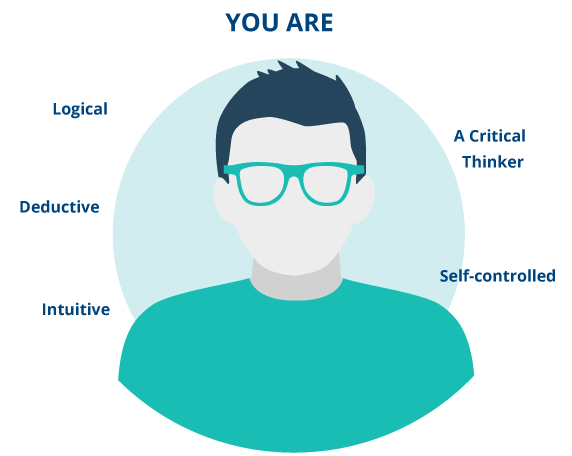Forensic Psychology
Education and Careers
Forensic psychologists are licensed psychologists who apply their knowledge of the mind and human behavior to civil and criminal law. They assess competency to stand trial, help with jury selection, work on child custody cases, and more.
What Forensic Psychologists Do

Forensic psychologists evaluate criminals to learn what their mindset and motives were at the time of—and leading up to—the crime they committed. They also determine what threat an offender may be to the public, so they work with parole and probation boards. They’re present in courtrooms across the country to help lawyers with jury selection and gauge defendants’ competency to stand trial.
In addition, many forensic psychologists work with children who are caught in custody battles between their parents or other relatives, with the goal of keeping children as safe as possible. And they commonly serve at-risk populations and trauma victims. It’s important to understand the true purpose of what a forensic psychologist does, as some depictions on television and in movies only present partial portraits of the career.
Skills You Need

Learn which personality traits and professional skills you’ll need to be a successful forensic psychologist.
You should have…
- Strong communication skills
- High ethical standards
- A desire to collaborate
- Excellent writing skills
- A strong stomach
How to Become a Forensic Psychologist
Forensic psychologists must be licensed to practice psychology in their state. Generally, you’ll need to have a doctorate in psychology and one to two years of clinical experience under the guidance of a mentor to qualify for licensure. Since state laws can change or vary, it’s always best to check with your state board for the most up-to-date information.
1
Get a Bachelor’s Degree in Psychology
To specialize in forensic psychology, you’ll need the knowledge of other psychologists. Make sure to start with a bachelor’s with a major in psychology.
2
Get an Advanced Degree in Psychology
Most graduate programs in forensic psychology look for a high score on the GRE, a GPA of 3.5 or higher, and volunteer or paid experience in the field.
3
Complete an Internship
All psychology programs require you to do an internship. Psychology internships must generally be approved by the American Psychological Association.
4
Pass the Psychology Exam
Take the Examination for Professional Practice in Psychology. The American Psychology-Law Society also recommends getting certified by the American Board of Forensic Psychology.
5
Apply for Licensure in Your State
To become a licensed psychologist you need to be credentialed by your state psychology board. Most states require two years of supervised experience after you earn your PhD or PsyD.
Until recently, forensic psychology degrees were quite rare. The most common approach was to obtain a master’s or doctoral degree in an established subfield of psychology or in criminal justice, and to take supplemental coursework that relates to the legal system.
But because of the rising interest in the field of forensics, an increasing number of online schools are offering the opportunity to obtain a specific forensic psychology degree at the master’s, Phd, or PsyD level. You’ll want to make sure any program you choose is accredited so that you may apply for financial aid to help pay for your education.
Financial aid comes in the form of government aid, scholarships, grants, private loans, and PLUS loans. The best first step is to fill out the Free Application for Federal Student Aid (FAFSA). In order to qualify for federal aid, the school you attend must be accredited.
Salary and Job Growth
Forensic psychologists are considered part of the larger field of psychologists in general, according to the U.S. Bureau of Labor Statistics (BLS). The BLS lists the median annual salary for psychologists as $92,740 in 2023. Actual salaries may vary based on specialization within the field, location, years of experience and other factors.
Compare psychology salaries below:

$147,420
Organizational Psychologists

$96,100
Clinical and Counseling Psychologists

$84,940
School Psychologists

$92,740
Forensic Psychologists
Employment of forensic psychologists is expected to grow 6.1% through 2032. But with the growing interest in this popular field, jobs will most likely go to those with doctoral degrees. National long-term projections growth may not reflect local and/or short-term economic or job conditions, and do not guarantee actual job growth.
Job Growth
6.1%
Related Occupations
Here are some other fields you might like if forensic psychology isn’t exactly what you’re looking for:






